Identity and Play: Individual Differences, Intersectionality, and Intentionally Affirming Practices in DIR®
Children explore and learn about the world and themselves through play, as they discover and express their developing identities. Expanding our comprehension of “individual differences” beyond neurobiological classifications allows foundational elements such as race, culture, sexuality, gender identity, socioeconomic status, and neurodiversity to be recognized, included, and valued. These foundational elements intersect and profoundly influence the experience of play, and how we identify ourselves, make sense of our world, and navigate relationships. Comprehending the intersection between play and identity maximizes agency and engagement with one’s family, community, and the wider world. Appreciating and supporting intersectional identities as they develop through the experience of play and communion with others empowers the DIR® community to engage in identity-affirming work with children and families.
As a result of this conference participants will be able to:
- Recognize intersectional identities as they relate to intentionally affirming work and play
- Describe 2-3 ways in which culture influences play with parents and professionals
- Utilize diversity-affirming language and action to provide support and minimize barriers when using the DIR® model around the world
Who should attend?
Professionals in Speech and Language, Occupational and Physical Therapies, Education, Mental Health (Psychology, Social Work, Counseling, Marriage and Family Therapy), Medicine, Play Therapy, Creative Arts, Parents, Caregivers and others who want to deepen their understanding of the intersection between play and identity in order to maximize agency and engagement
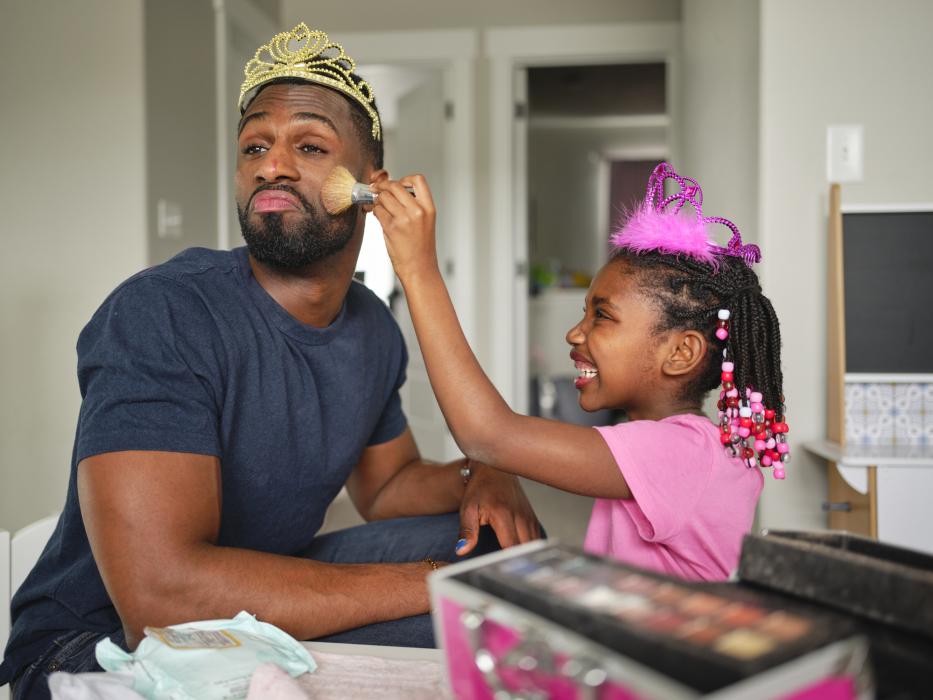
Dates and Times
Friday, September 29, 2023 - 9:15 am to 5:00 pm (eastern daylight time)
Sunday, October 1, 2023 - 9:30 am to 4:45 pm (eastern daylight time)
Live Online
Registration Fees
Recordings will be available up to 45 days post conference with a conference registration.
Conference Committee
Mary Ann O'Connell, MA, CCC-SLP, Conference Chair
Georgina Ahrens, BAppSc
Taiisha Calbert-Foster, MS, Ed
Psic. María Del Mar Ferré Tellería
Cortney Grove, MA, CCC-SLP I/ECMH-C
Laura Jendusa, MA, OTR/L
Psic. Sophia Pampolini Perugini
Ruby Salazar, LCSW, BCD - Special Advisor
Chris Seminaro, MEd
Friday, September 29, 2023
Expanding the I: Play, Race, & Culture
Pathways to Development of Self & Identity through a DIR® Lens
Self is a multifaceted construct and an anchor in the larger idea of identity. A framework for the formation of early self will be offered that examines its roots in the infant’s inborn patterns of action and reaction in a relational matrix. We will explore the ways that play, particularly sensorimotor and functional play, awakens and elaborates the key components of self.
As we explore climbing the symbolic play ladder, we will trace a journey of discovery of self, reality, and agency imbued with emotions and images seen in the mind’s eye where an object or story can be anything you make of it. Through observation and self-reflection of how others perceive the developing child and vice versa, identity formation is underway, sometimes confused, but always developing in a life span process.
Variations and alternate routes to the same developmental ends are shaped by culture, community, family, and individual differences. DIR® is a lens that illuminates and informs the self-play journey.
As a result of this presentation, participants will be able to:
- Identify the central milestones in the play-self journey
- Describe two ways that play awakens the drive to self-formation
- Identify the parallel processes of identity formation from a DIR® perspective
- Discuss the challenges when personal and cultural identity do not align
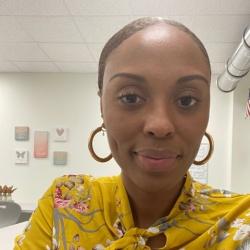
Taiisha Calbert-Foster, MS, Ed

Gilbert Foley, EdD, IMH-E

Cortney Grove, MA, CCC-SLP, I/ECMH-C

Serena Wieder, PhD
Tú, yo y nosotros (You, me & we)
In this segment, we will hear about a family’s DIR® journey of discovery from the clinician and the mother who lived this experience. This gentle sharing will convey how a woman continued to develop her identity as a mother of three children, two of whom are neurodivergent, by learning to relate and play with them in meaningful and playful ways that matched their individual differences as she supported her children’s identity formation and expression through their relationship.
As a result of this presentation, participants will be able to:
- Describe two ways in which the family’s lived experience of play and relationship-based intervention may differ from the clinician’s experience
- Explain two ways in which one’s intersectional identities can influence identity formation as a parent
- Identify different ways a child forms and expresses his own identity through play
- Explain two ways in which relationship-based intervention, through meaningful and playful interactions that are respectful of the child’s interests and intentionality, support identity formation and expression

Natalia Castro
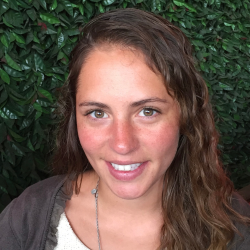
Psic. María Del Mar Ferré Tellería

CHRIS SEMINARO, MEd
Pedagogical Possibilities of Play: Promoting Positive Racial Identity Development in Young Black Children
In this presentation, participants will explore an anti-racist framework of play-based pedagogy and how it supports the positive identity development of Black children. Participants will be encouraged to reflect on current practices, perceptions of children and race, and the value of play-based pedagogies.
As a result of this presentation, participants will be able to:
- Describe the main features of an anti-racist play-based learning framework.
- Explore the pedagogical implications of the research literature on specific dimensions of Black children’s racial identity (awareness, identification, and attitudes).
- Contextualize the significance of bridging anti-racist precepts with play-based learning.
This presentation will not be recorded. If you would like to see this presentation, you must attend live via Zoom on Friday, 9/29 at 12:35 -1:20 pm eastern.
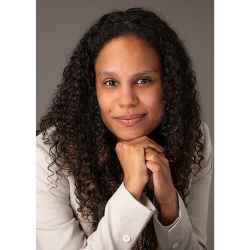
Kerry-Ann Escayg, PhD
Maternal and Paternal Engagement and Early Childhood Outcomes in Low- and Middle-income Countries
This presentation focuses on early patterns of maternal and paternal engagement in play and literacy-based activities and associations with children’s social and literacy skills in Caribbean and African countries. Local and pancultural trends and risk and protective factors will be discussed. Implications for early prevention and intervention will be highlighted.
As a result of this presentation, participants will be able to:
- Summarize patterns of maternal and paternal engagement and childhood outcomes in select low- and middle-income countries
- Describe risk and protective factors and cultural developmental pathways to childhood development
- Apply basic concepts on early maternal and paternal engagement in prevention and intervention programs

Jaipaul Roopnarine, PhD
Resilient Journeys: Play Therapy for the Immigrant Experience
This presentation aims to create a compassionate space for participants to gain a deeper curiosity of the complexities surrounding immigration and how play can be used as a means of empowerment and healing by examining individual differences and diverse perspectives.
As a result of this presentation, participants will be able to:
- Discuss the distinct challenges and successes experienced by immigrants/refugees as they navigate their journey in a new country
- Assess the role of play in promoting resilience and facilitating cultural integration among individuals in diverse communities
- Demonstrate at least one way to support immigrants with play

Liliana Baylon, LMFT-S, RPT-S
Expanding the I: Race, Culture, and Play Panel
As we look to expand our comprehension of individual differences within the DIR® framework, appreciating the ways in which play is influenced by a child's cultural and racial identities is instrumental to our work as practitioners (globally/internationally). This panel discussion aims to highlight the functions of race and culture in the context of play, how these constructs intersect during development, and how emergent identity formations are manifested through play.
As a result of this presentation, participants will be able to:
- Define three ways the constructs of culture or race intersect with identity formation in the context of play-based experiences
- Describe the importance of considering race and culture in play-based observations, interventions, and relationship-building
- List at least three ways to provide affirming and supportive practices that build a child and family’s varied identity formations through play
Panel discussion moderated by Jeannie Gutierrez, PhD

Liliana Baylon, LMFT-S, RPT-S
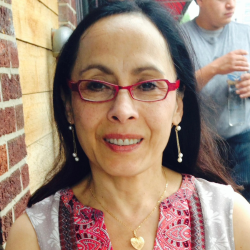
Jeannie Gutierrez, PhD
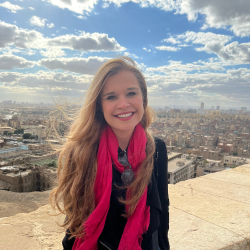
Sophia Pampolini, Psychology

Jaipaul Roopnarine, PhD
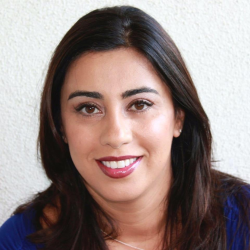
Kamelia Rouhani Slankard, MA, CCC-SLP
Sunday, October 1, 2023
Expanding the I: Play & Neurodiversity
Play & Neurodiversity
Historically children with special educational needs have been viewed as problems to fix, and so the usual approach is to use play-based intervention programs to train the child to behave more “normally”. This usually involves taking a child away from their everyday play and offering structured programs with a measurable outcome. The rationale for this is that play does not come naturally to all children. This emerges from the belief that there is a ‘right’ or ‘appropriate’ way to play.
The reality is that play is defined by the child and we, as adults, don’t get to say what is right and wrong when it comes to playing. For example, many neurodivergent children have diverse play skills involving special and intense interests. Instead of viewing this as inappropriate play, or something to be concerned about, we have an opportunity to use this special interest as a springboard for their learning.
Neurodiversity-affirming practitioners recognize that play doesn’t need to make sense to them if it makes sense to the child. At its core, neurodiversity empowers us to think differently about difference and when we embrace this, we can truly help our children to thrive and learn positive self-identity.
As a result of this presentation, participants will be able to:
- Describe the concept of ableism and disablism within the early years, and how this shows up in our everyday practice
- List some of the implications of the deficit approach to development differences, and neuromyths
- Discuss how to develop a neurodiversity-affirming mindset when supporting children’s play and learning

Kerry Murphy
Mirror of My Soul; Window to My World
Play is relational. When we play we engage in relationships with ourselves, others, objects, and our environment using all the tools we have available to us provided by our individual differences, our communities, our cultures, and our society. Play, in its broadest sense, is universal, allowing us to discover ourselves - our soul, our identities and sense of self, our purpose, our values and sense of worthiness, our joys, our dreams, and our fears - as we are reflected in the context of and in relationship with the world in which we live. And when we allow ourselves to be in the play of and with another, we may get a glimpse into their world. Play captures in its essence, each person’s possible, perceived, and actual unique experience in the world - a world that only each person knows as an individual and as a part of collective experiences. Guided by principles from the Diversity-Informed Tenets for Work with Infants, Children and Families, we consider together the intersection of play, identity, and anti-racist, anti-oppressive, decolonized (diversity-informed) practice.
As a result of this presentation, participants will be able to:
- Define the concept of diversity-informed practice and be introduced to principles of the Diversity-Informed Tenets for Work with Infants, Children and Families
- Apply diversity-informed practice to the theme of the conference: Identity and Play
- Describe the intersection of play, identity, and anti-racist, anti-oppressive, decolonized (diversity-informed) practice.

Nucha Isarowong, PhD, LICSW, IMH-E®
Remembering, Understanding, & Reflecting on Individual Differences
The segments in this conference are focused on expanding our comprehension of “individual differences” beyond neurobiological classifications to allow and support foundational elements such as race, culture, sexuality, gender identity, socioeconomic status, and neurodiversity to be recognized, included, and valued in work with infants, children, adolescents, young adults, and families.
This segment will offer space, on the second day of the conference, for participants to engage in small group reflective discussions centering on the intersectionality of identity formation and play. The intention is for conference participants to have an opportunity to contribute to knowledge-making through peer-to-peer reflective conversation.
Each group will be led by a reflective facilitator whose aim will be to create and maintain a safe space to support and continue reflective group discussion. In the second hour, the break-out groups reconvene. The reflective facilitators will form a panel with one reflective moderator. The aim of the reflective moderator will be to create and maintain a safe space to support and continue reflective group discussion with the reflective facilitators for the purposes of summarizing and reflecting on the small group discussions.
As a result of this presentation, participants will be able to:
- Define at least two ways the intersectionality of identity formation and play can manifest in work with infants, children, adolescents, young adults, and families
- Describe at least two ways to support infants, and children’s organic identity formation through play-based experiences grounded in DIR® principles
- Describe at least two ways the conference topic of the intersectionality of Individual Differences (the “I” of DIR®), identity formation and play impacts work with infants, children and families
Reflective Facilitators & Reflective Moderators:
- Will hold themselves in a position of peer with the group members
- Will be trained in and have experience with reflective practice and reflective group discussion
- Will advocate for the safety of individuals from marginalized groups when in a group of people from various backgrounds
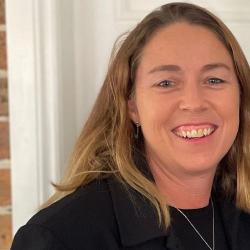
Georgina Ahrens, BAppSc

Tal Baz, MS, OTR/L
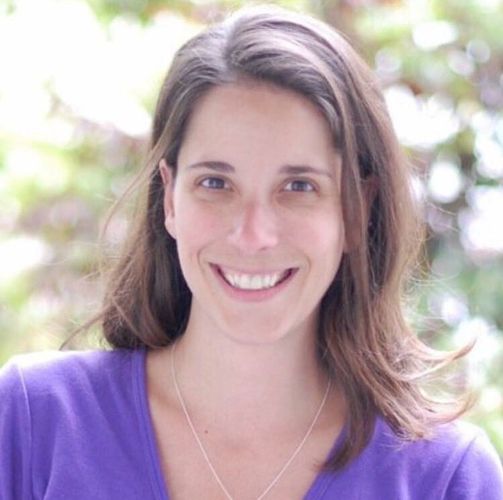
Liesl Hartmann, MA, CCC-SLP, BCS-CL
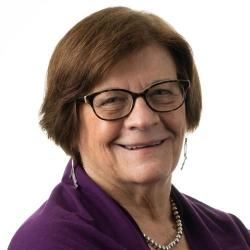
Beth OSTEN, PhD, OTR/L

Jennie Trocchio, PhD
Expanding the I: Neurodiversity and Play Panel
Neurodivergent individuals around the world require affirming practices that support their unique ways of thinking, being, and doing. In our continued effort to expand the "I" of Individual Differences, we will have a candid discussion about neurodiversity, how play may be misunderstood or pathologized, and the importance of uplifting and guiding children and parents as they embrace their neurodivergence beyond a label but rather as an identity that informs their lived experiences
As a result of this presentation, participants will be able to:
- Define three ways the construct of neurodivergence intersect with identity formation in the context of play-based experiences
- Explain how neurodiversity-affirming play-based interventions reinforce identity development
- Identify at least three barriers to healthy neurodivergent identity formation as related to service delivery
Panel discussion moderated by Nucha Isarowong, PhD, LCSW

Tal Baz, MS, OTR/L

Psic. María Del Mar Ferré Tellería

Nucha Isarowong, PhD, LICSW, IMH-E®

Kerry Murphy

Georgina Ahrens, BAppSc

Liliana Baylon, LMFT-S, RPT-S

Tal Baz, MS, OTR/L

Taiisha Calbert-Foster, MS, Ed

Natalia Castro

Kerry-Ann Escayg, PhD

Psic. María Del Mar Ferré Tellería

Gilbert Foley, EdD, IMH-E

Cortney Grove, MA, CCC-SLP, I/ECMH-C

Jeannie Gutierrez, PhD

Liesl Hartmann, MA, CCC-SLP, BCS-CL

Nucha Isarowong, PhD, LICSW, IMH-E®

Kerry Murphy
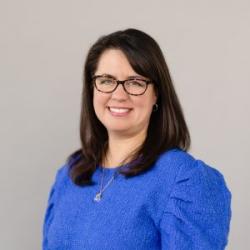
Mary Ann OConnell, MA, CCC-SLP

Beth OSTEN, PhD, OTR/L

Sophia Pampolini, Psychology
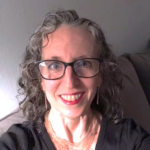
Lisa Reilly

Jaipaul Roopnarine, PhD

CHRIS SEMINARO, MEd

Kamelia Rouhani Slankard, MA, CCC-SLP

Jennie Trocchio, PhD

Serena Wieder, PhD
General Overview
General Certificates of attendance will be emailed the week following the last day of the Conference. To receive a certificate, attendees must attend the conference "live" (in real-time). Hours of attendance are taken from the Zoom attendance logs.
American Occupational Therapy Association (AOTA)
For learners that have signed up for continuing education credit for Occupational Therapy (AOTA), you are required to complete the following course requirements:
- Learners must attend the Conference Day for the full scheduled time. Credit will only be awarded for learners who attend the entire day.
- Complete post Conference Quiz with 80% or better score.
- Complete Conference Evaluation (per day)
- Submit Learner Identification Information (AOTA)
If you have any questions or concerns regarding the process for AOTA CE credits, please contact Profectum Foundation 973-531-4376 or email emily.mohr@profectum.org. 267 Main St., Ste 2B, Chester, NJ 07930
Profectum Foundation is an AOTA Approved Provider of professional development. Course approval ID# 07840. This Distance Learning-Interactive is offered at .6 CEUs on September 29 and .55 CEUS on October 1, 2023. Intermediate level, OT Service Delivery/ Professional Issues / Foundational Knowledge. AOTA does not endorse specific course content, products, or clinical procedures.
American Speech-Language-Hearing Association (ASHA)
Approved for ASHA credits
Satisfactory Completion Requirements:
- Attend the conference "live" (in real-time)
- Complete a post conference evaluation at the end of each day
- Complete an ASHA participant form
There are no prerequisites for this Conference.
ASHA Continuing Education credits co-sponsored by Easterseals DuPage & Fox Valley
For learners that have signed up for continuing education credit, you are required to complete the following course requirements:
- Learners must attend the Conference Day "live" (in real-time) for the full scheduled time. Credit will only be awarded for learners who attend the entire day. There are no prerequisites for this Conference.
- You will receive an email 1-2 after the last Conference day you were registered for with instructions on obtaining your Certificate. Participants print their own certificate after registering at CE-Classes.com, entering a keycode, and completing an evaluation form. Certificates are awarded online after completion of the Conference.
CE-Classes.com is the provider of (CEs). This Conference is approved for 5 CEs on September 29 and 4 CEs for October 1, 2023.*
*Continuing education credits are available for all presentations with the exception of Tú, yo y nosotros (You, me & we) on Friday, 9/29 and Play & Neurodiversity on Sunday 10/1. These presentations are not included in CE hours.
Licensed Professionals should contact their regulatory board to determine course approval. There are no known conflicts of interests for this workshop.
- The American Psychological Association (APA) Ce-Classes.com is approved by the American Psychological Association to sponsor continuing education for psychologists. Ce-Classes.com maintains responsibility for this program and its content.
- This course is NOT available for NBCC credit.
- This training does not offer ASWB ACE credit to social workers.
- The Florida Board of Clinical Social Work, Marriage and Family Therapy and Mental Health Counseling Provider #852 BAP-Expires 3/31/2025
- The California Board of Behavioral Sciences. The California Board of Behavioral Sciences, BBS, recognizes relevant course work/training that has been approved by nationally recognized certifying bodies, such as APA, to satisfy renewal requirements.
- California Consortium of Addiction Programs and Professionals (CCAPP) Provider Number OS-12-174-0225 Expires 2-2025
- The Texas Board of Social Work Examiners – CE-Classes.com meets the requirements for acceptable continuing education
- The Texas Board of Professional Counselors – CE-Classes.com meets the requirements for acceptable continuing education
- Massachusetts Authorization Number: TBD
- Ohio Counselor, Social Worker and Marriage and Family Therapist Board – Approval from a state licensing board for counselors, social workers, marriage and family therapists is accepted by the OH CSWMFTB.
- New York Social Work Board – Ce-Classes.com is recognized by the New York State Education Department’s State Board for Social Work as an approved provider of continuing education for licensed social workers #SW-0120.
- The Florida Board of Nursing (CE Provider #: 50-4896) Expires 10/31/2024 Do not send certificates to the Florida Board of Nursing. You must keep this certificate for 4 years.
- The California Board of Registered Nursing. CEP 15647 Expires 11/30/2024.
Continuing Education Credits sponsored by CE-Classes.com
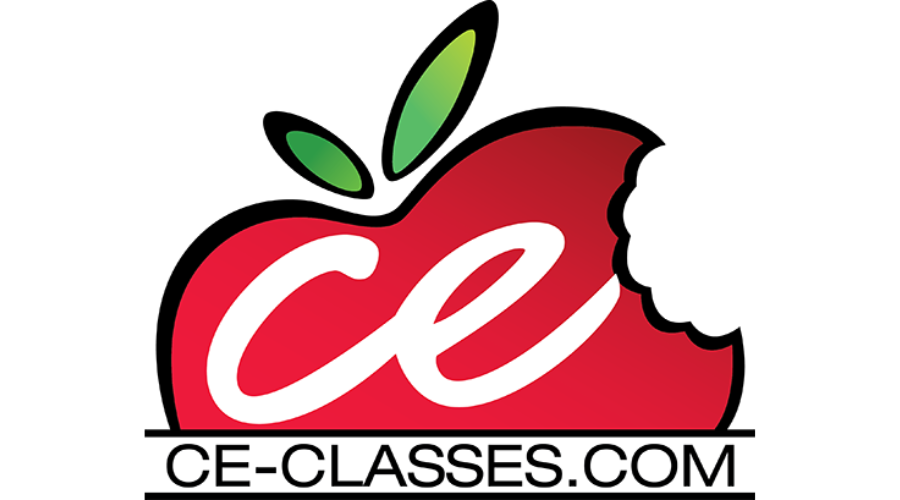
Coffee & Connect
Welcome and Introduction
Mindful Moment
Pathways to Development of Self & Identity through a DIR® Lens
Break
Tú, yo y nosotros (You, me & we)
Lunch Followed by a Mindful Moment
Pedagogical Possibilities of Play: Promoting Positive Racial Identity Development in Young Black Children
Break
Maternal and Paternal Engagement and Early Childhood Outcomes in Low- and Middle-income Countries
Break
Resilient Journeys: Play Therapy for the Immigrant Experience
Break Followed by a Mindful Moment
Expanding the I: Race, Culture, and Play Panel
Mindful Closing
Coffee & Connect
Welcome and Introduction
Mindful Moment
Play & Neurodiversity
Mindful Moment
Mirror of My Soul; Window to My World
Lunch
Remembering, Understanding, & Reflecting on Individual Differences
Break Followed by a Mindful Moment
Expanding the I: Neurodiversity and Play Panel
Mindful Closing
General Information
Cancellations more than 10 working days (Mon-Fri) before the start date of this program will result in a refund less a $25.00 cancellation fee.
No refund can be given for a cancellation 9 or fewer working days (Mon-Fri) before this program start date.
Requests for refunds must be received in writing via email to training@profectum.org.
In the event that this program is cancelled, you will be notified immediately via email and a credit will be issued toward a rescheduled program, or the entire submitted fee will be refunded without further liability on the part of the organizer.
If you require ADA accommodations or have a special needs request, please email training@profectum.org at least two weeks before the program start date so arrangements can be made.
Registration Fees
Recordings will be available up to 45 days post conference with a conference registration
Continuing Education applications are being submitted to the following: AOTA, ASHA, APA, Florida Board of Clinical Social Work, Marriage and Family Therapy and Mental Health Counseling, California Board of Behavioral Sciences, Texas Board of Social Work Examiners, Texas Board of Professional Counselor, Ohio Counselor, Social Worker and Marriage and Family Therapist Board, New York Social Work Board, Florida Board of Nursing, California Board of Registered Nursing
Profectum is committed to providing equitable access to our conferences across a wide span of constituencies, including across our many international stakeholders and attendees. In an effort to remove barriers to attendance, we are pleased to offer a sliding scale of registration fees. The “Community Supported” fee is available for anyone with financial or other hardships. The “Standard” fee is the set cost. The “Pay It Forward” fee enables you to assist in covering costs for others. There are no separate forms or processes; each registrant should choose the amount they are comfortable paying, and register at that price.
Early Bird (until Sept. 15th): $195
Standard (after Sept. 15th): $220
Community Supported: $125
Pay it Forward: $250
Parents and Students (no CEs): $95
Group 5+ (from the same organization): $165
(NOTE: If you are not logged in to your account, you will be prompted to do so. If you do not have an account, click on "sign up")
 (2)_5.jpeg)

